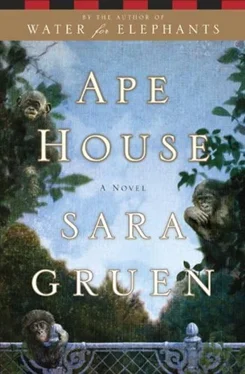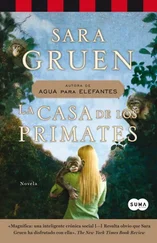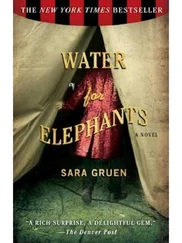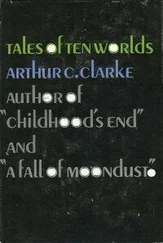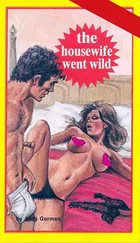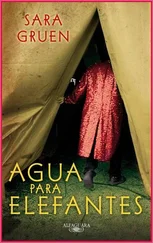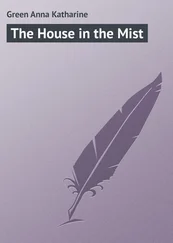After several months of searching, John took a staff job at The Philadelphia Inquirer , or “the Inky,” as insiders called it. It was a fine job, a great job, but it nearly killed John to accept it because it was a direct result of his father calling in a favor from a fellow Moose Lodge member. And so John was taken on, reporting to Elizabeth, who resented his very presence, even as other Inky employees were being encouraged to walk the plank with early retirement packages.
Under any other circumstances, his work would have redeemed him: John’s investigation into a fire at the zoo’s ape house in 2008-on Christmas Eve, no less-had uncovered gross incompetence. Fire alarms had gone off and been ignored. People smelled smoke and never investigated. There were no sprinkler systems. All told, twenty-three animals died, including an entire family of bonobos. A week ago, on the one-year anniversary of the fire, a toddler scaled a wall and fell twenty-four feet into the new gorilla enclosure. The only gorilla who had survived the fire, whose own baby had died of smoke inhalation, swooped in through the gaggle of other curious gorillas, cradled the child in her arms, and carried him to the door of her enclosure, where she handed him to zookeepers. This astonishing act of empathy, caught on video and aired across the country, was dismissed by several right-leaning outlets and pundits as simple training. Simple training for what, John wondered? Were they suggesting the zoo had been dropping dolls into the gorilla pit to practice for just such an occasion? John found this reactionary denial almost as fascinating as the gorilla’s response-was it because empathy was supposed to be a purely human response? Was the discussion really about Evolution?-and this led to his proposing a piece on the cognitive studies being performed at the Great Ape Language Lab. At this point Elizabeth suddenly decided he needed to share the byline with Cat Douglas. She offered no explanations, but John had two theories: either she was still so angry about having to hire him that she was shackling him with the most abrasive woman alive, or else she wanted to associate her star reporter with a series that was beginning to smell like potential Pulitzer material. (Early in her career, Cat had become something of a celebrity in the newspaper world when she caught a Pulitzer Prize-winning reporter in a lie about a made-up eight-year-old crackhead, and then scored a Pulitzer herself for breaking the story. She had also stirred up controversy by allegedly faking a romantic interest in her rival reporter and going through his files when she was alone in his apartment.)
John realized with a start that he had eaten every last dot of the Osetra. There was a tiny bit of champagne left in the bottle, but he didn’t want to change the flavor of his mouth. What he wanted was more caviar. He ran his finger across the plate and licked it.
Then he hauled himself off the floor and locked the front door. As he passed the hall table he noticed the message light blinking on the house phone. Fran, his mother-in-law, had left multiple messages, each more forceful than the last. Apparently Amanda had been screening her calls. John could not have been more sympathetic. Their mothers were polar opposites, but equally challenging. Where Patricia would retreat into a glacial silence, Fran would be upstairs sorting your socks. She disguised Schadenfreudic glee as helpfulness, malice as concern, all while harvesting information to share with the rest of the clan. With Fran, nothing was off-limits.
John deleted her messages.
***
It was two in the morning before John remembered the beef Wellington, and he remembered it then only because he thought the house was on fire. His eyes sprang open at the first hint of smoke. Amanda remained in a dead sleep.
John bounded down the stairs and into the kitchen. Smoke poured from the edges of the oven. John shut it off and opened the window and back door. He picked up a dish towel and snapped it like a matador’s cape in an effort to direct the smoke outside.
The beef Wellington was a charred rectangle solidly attached to the bottom of the roasting tin. The winding pastry vine Amanda had carved and applied to the top was the least burned, so John plucked off a leaf and ate it. He examined her artistry-each leaf was scored exactly six times, and the stem wound in and around itself, a perfect pastry kudzu.
At the beginning of their cohabitation, Amanda had given them both campylobacter poisoning from her improvisations with canned soup. Her remorse was grand and her declarations grander: she wanted to become a gourmet chef. John hadn’t thought much of it at the time, but in retrospect he felt that this was the first time he’d truly seen the sheer force of her will. She bought all of Julia Child’s books, pored over them, and obeyed every command. (“If Julia says peel the broccoli, you peel the broccoli,” she’d said bashfully the first time John caught her doing it. He’d roared with laughter, but after tasting the result never again questioned any bizarre kitchen ritual.)
Tonight, she’d left a fistful of raw puff pastry and all the leaves that hadn’t passed muster wadded up beside the cutting board. Bits of egg and shell were dried onto the counter along with smashed garlic skins and strips of waxed butter wrapper. Flour coated the floor. Every utensil she’d used was abandoned at the precise spot where she’d ceased to use it.
John turned on the water, and waited until it got hot. Although he was tired, he wanted Amanda to encounter a clean kitchen when she rose the next morning.
Isabel drifted in and out of a swirling rush. It wasn’t sleep, because she was aware of things happening-people speaking, but not understandably, swooshing noises as she zoomed from tunnel to tunnel-this one orange, this one blue, this one green. Hands manipulated her body and her face, and she suffered the occasional discomfort of being punctured. But reacting or moving didn’t occur to her, and it was just as well, because it wasn’t a possibility. Finally the colors and noise submerged into a merciful, vacuous black.
A high-pitched beeping and intermittent wheezing disturbed her rest, stirring and prodding from the depths. She tried to ignore it like she would a fly, but like a fly, it was insistent. Finally, she surfaced.
She blinked several times and found herself looking at pressed ceiling tiles. Her peripheral vision was obscured by her own swollen flesh.
“Look who’s awake.”
Peter’s face appeared above her, smiling. His eyes had dark crescents beneath them and his chin was flecked in stubble.
“The nurses said you were coming around.” He pulled a chair up and sat next to her, reaching through the bars in the bed rail. His hand was warm and familiar to her: he was missing the first two sections of his left index finger, bitten off by a chimpanzee while he was doing graduate work at a primate center in Rockwell, Oklahoma. She tried to tighten her fingers around his, but was too weak. He reached through with his other hand and stilled hers.
Isabel mumbled, but her mouth wouldn’t cooperate. Her tongue moved, but her teeth wouldn’t budge.
“Your jaw is wired. Don’t try to talk.”
She lifted a hand and found it encumbered by a finger clamp and loops of IV tubing. She freed the other from Peter’s grasp and gingerly investigated her face. Her fingers met a maze of plaster, gauze, and tape, the tender lumps of swollen lip and lines of wire crisscrossing the brackets that had been glued onto her remaining teeth. Her eyes swung to Peter. She signed, TELL ME.
“Your jaw is broken and you have a concussion. They had to reinflate your lung, so you have a chest tube, and your nose-”
Читать дальше
